Partners
National Institute of Chemistry

The National Institute of Chemistry (NIC) in Ljubljana is a leading Slovenian research institution in the field of chemistry and related disciplines such as multiscale modeling and simulation of soft and biological matter. MultiXscale is coordinated by the Laboratory for Molecular Modeling@NIC. The lab’s expertise lies in the development of multiscale algorithms that concurrently combine descriptions of molecular fluids at particle and continuum levels of detail.
Forschungszentrum Jülich

Forschungszentrum Jülich is a prominent European hub for supercomputing, providing high-performance computing resources to the German and European science communities. The Jülich Supercomputing Centre (JSC) offers comprehensive support to scientists involved in supercomputing and simulation sciences, with expertise in parallel computing, numerical algorithms, and performance portability. JSC is a lead developer of the load balancing library ALL and collaborates on the ScaFaCoS fast electrostatics solver library. Additionally, JSC possesses extensive experience in particle simulation methods and excels in coupling different resolution schemes, contributing significantly to the advancement of computational science.
University of Stuttgart
Institute for Computational Physics
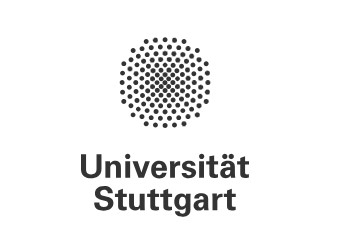
The Institute for Computational Physics employs high-performance computing on supercomputers and parallel clusters to address intricate physics problems that resist analytical solutions. Their primary research thrust revolves around understanding soft matter systems, with a special focus on charged entities like polyelectrolytes, charged colloids, ferrofluids, and ionic liquids. The simulations are carried out on parallel computers, utilizing the ESPResSo simulation package, which they actively enhance, particularly in the context of algorithms for managing long-range interactions. Notably, the institute leads the development of ESPResSo and possesses extensive expertise in soft condensed matter science, spanning polymers, polyelectrolytes, polymer nanocomposites, colloids, and ionic liquids. Their algorithmic competence extends to molecular dynamics, Lattice-Boltzmann hydrodynamics, coupling particle- and lattice-based simulations, and electrostatic solvers.
University of Barcelona

The University of Barcelona is a public research university located in the city of Barcelona, Catalonia, Spain. University of Barcelona brings both technical and scientific expertise. Researchers involved in the project have been technical manager and scientific lead of the E-CAM CoE as well as leading a number of WPs there. One researcher is an EasyBuild maintainer and EESSI and MagicCastle contributor. Algorithmic expertise in the development of hybrid and multiscale computational methods, e.g. DPD and Lattice-Boltzmann.
SURF

SURF is a cooperative association of Dutch educational and research institutions in which the members combine their strengths. User support, end-user training and operation of HPC clusters owned by Surf. Partner in EESSI. Deploying optimized software installations with (and contributor to) EasyBuild. Using internally developed ReFrame tests for software and hardware monitoring. Experience with emerging hardware technologies through the SURF Open Innovation Lab.
University of Groningen
Center for Information Technology

Based in the North of the Netherlands, the Center of Information Technology of the University of Groningen is a leading international center in the field of IT. They have decades of experience in providing a robust infrastructure to 6000 researchers and their (international) partners, enabling them to deliver innovative solutions and a solid base to work on. Their research support takes a data-centric approach with a high-end infrastructure and a multidisciplinary data science support team. Working in collaboration with researchers, they create tailor-made virtual research environments using flexible building blocks such as high-end scalable HPC clusters and state-of-the-art data storage facilities. With three data centers, excellent access to the national academic network, research data management services, virtual research workspaces, and data visualization facilities (XR and 3D), they are trusted by large national and international projects, including LOFAR, Euclid, Escape (in astronomy and large data), and Lifelines, BBMRI, and Excelerate/Elixir (in medical data). The CIT is an integral part of the Dutch Scientific Large-scale Infrastructure.
Ghent University
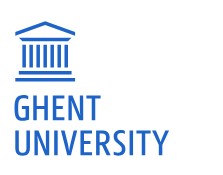
Nestled in the vibrant city of Ghent, Belgium, Ghent University is a distinguished public research institution where cutting-edge solutions are brought to the forefront of scientific discovery. With a rich legacy in building, managing, and providing support for High-Performance Computing (HPC) infrastructure, extensive experience is showcased in delivering exceptional services to end users. As a leader in the field, the development of EasyBuild, a ground-breaking tool designed to simplify the installation of scientific software on HPC systems, is spearheaded with pride. Commitment to advancing research extends beyond borders through active participation as partners and contributors to the European Environment for Scientific Software Installations (EESSI) project. Furthermore, collaboration includes co-developing the VSC test suite using ReFrame, reinforcing dedication to elevating the standards of computational research.
University of Bergen

The University of Bergen, situated in Bergen, Norway, is a distinguished public research university. The procurement, deployment, and operation of High-Performance Computing (HPC) machines are undertaken both locally at UiB and nationally in Norway. Comprehensive support, encompassing basic and advanced user assistance, as well as training for researchers in all facets of HPC machine utilization, is provided. The university is actively engaged in the ongoing development of new services aimed at enhancing the overall efficiency and functionality of these machines.
Barcelona Supercomputing Center
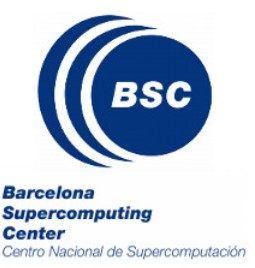
Barcelona Supercomputing Center-Centro Nacional de Supercomputación (BSC-CNS) serves as the national supercomputing center in Spain. Specializing in high-performance computing (HPC), BSC-CNS oversees MareNostrum, one of the most powerful supercomputers in Europe. BSC-CNS extends its services to the global scientific community and to industrial entities in need of HPC resources. Their multidisciplinary research team, coupled with their state-of-the-art computational facilities, including MareNostrum, positions BSC-CNS as an international hub of excellence in e-Science. The center also actively engages in RISC-V co-design activities, focusing on benchmarking and LLVM compiler-generated code for advanced technological developments.
Sorbonne University

Sorbonne University, situated in Paris, France, is a distinguished public research university and one of the earliest established in Europe. They possesses extensive experience in the development of molecular dynamics code for electrochemical systems, showcasing a strong expertise in modellng supercapacitors and battery electrolytes.
HPCNow!

HPCNow! offers its customers a range of solutions and cutting-edge technologies to address the most intricate challenges within High-Performance Computing (HPC). The company boasts a team of experts across various domains, equipped to deliver services and solutions spanning multiple areas, including cluster design, supercomputer administration, and user support. Their expertise extends to HPC services both in cloud-based environments and on-premises systems, reflecting a deep understanding of the intricacies involved. Furthermore, HPCNow! brings a wealth of experience in user support, ensuring the seamless operation of HPC systems. Their proficiency also extends to the provisioning of software and hardware, providing comprehensive solutions to meet the diverse needs of their clientele.

This project has received funding from the “HORIZON.2.4 – Digital, Industry and Space” programme with co-funding from CDTI and the Research and Innovation Framework Programme “Horizon Europe” of the European Union. Supported by CDTI. Resolution of the Call 4th October 2023.
Leonardo

Leonardo is a prominent global industrial group that specializes in developing technological capabilities within the Aerospace, Defence & Security sectors. The company holds a significant role in major international strategic programs and serves as a reliable technological partner for governments, defense agencies, institutions, and enterprises. Leonardo is at the forefront of delivering cutting-edge rotorcraft solutions designed to offer the highest levels of performance, capability, safety, and comfort. In addition to their comprehensive expertise in developing fundamental vertical flight technologies, Leonardo’s portfolio extends to encompass remotely piloted aircraft and tiltrotors. This diverse range of solutions consistently drives the boundaries of innovation in the field of air mobility.
Italian Institute of Technology
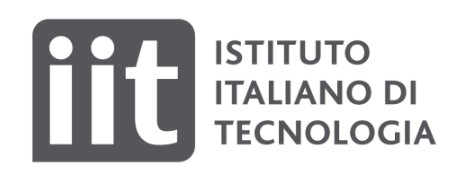
The Italian Institute of Technology, located in Genoa, Italy, is a scientific research center with a primary mission to advance science both within Italy and globally. They achieve this by engaging in projects and conducting research that is oriented toward practical applications and technological advancements. The institute boasts extensive, longstanding expertise and holds a position of international leadership in the field of Lattice-Boltzmann theory. Their focus includes the development and application of this theory to address complex flow problems. Additionally, they specialize in computational modelling of physical systems at the nano- and meso-scales, further contributing to scientific progress and technological innovation.
University of Toulouse

The University of Toulouse (Associate Partner) is renowned for its expertise in the multi-scale modeling of supercapacitors, distinguishing itself through a specialized focus on lattice-based methods. Researchers at the university delve into the intricate details of supercapacitor behaviour across various scales, contributing significantly to the advancement of energy storage technologies. The institution’s commitment to pioneering research in this field underscores its position as a leading hub for cutting-edge developments in energy storage and materials science.
Max Planck Institute for Polymer Research
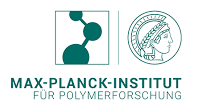
The Max Planck Institute for Polymer Research (Associate Partner) boasts extensive expertise in the field of polymers and polyelectrolytes, positioning itself as a key player in polymer research. Furthermore, the institute showcases its algorithmic proficiency through the seamless coupling of Lattice-Boltzmann and molecular dynamics simulations, demonstrating a sophisticated approach to studying complex materials. Additionally, the Max Planck Institute excels in the thermalization of the Lattice-Boltzmann method, contributing to advancements in computational techniques for simulating diverse physical phenomena at the molecular level.
National Research Council
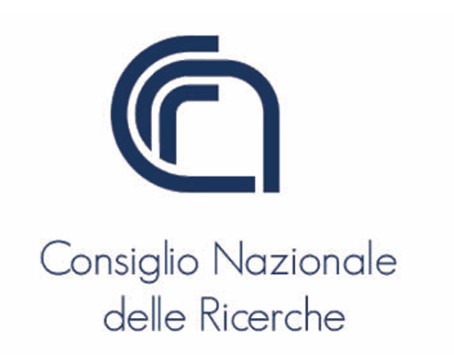
The CNR (Associate Partner) is recognized for its extensive and longstanding expertise in Lattice-Boltzmann theory and application. With a focus on long-term commitment, CNR has established itself as a leading authority in the field, contributing significantly to the theoretical foundation and practical applications of the Lattice-Boltzmann method. Additionally, CNR excels in the realm of high-performance computing (HPC), showcasing versatile implementations on a variety of parallel platforms, further enhancing the computational efficiency and applicability of their research.

